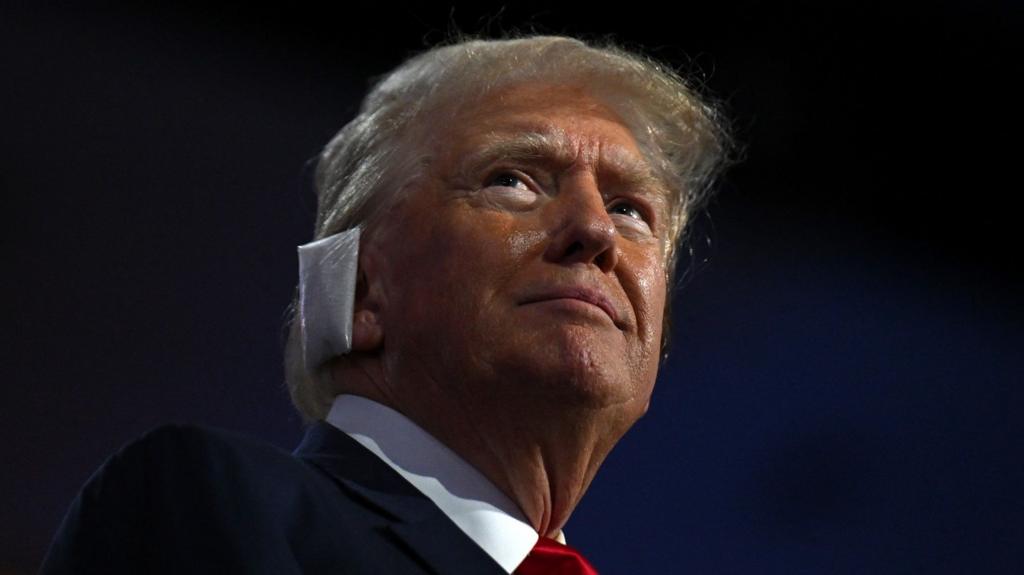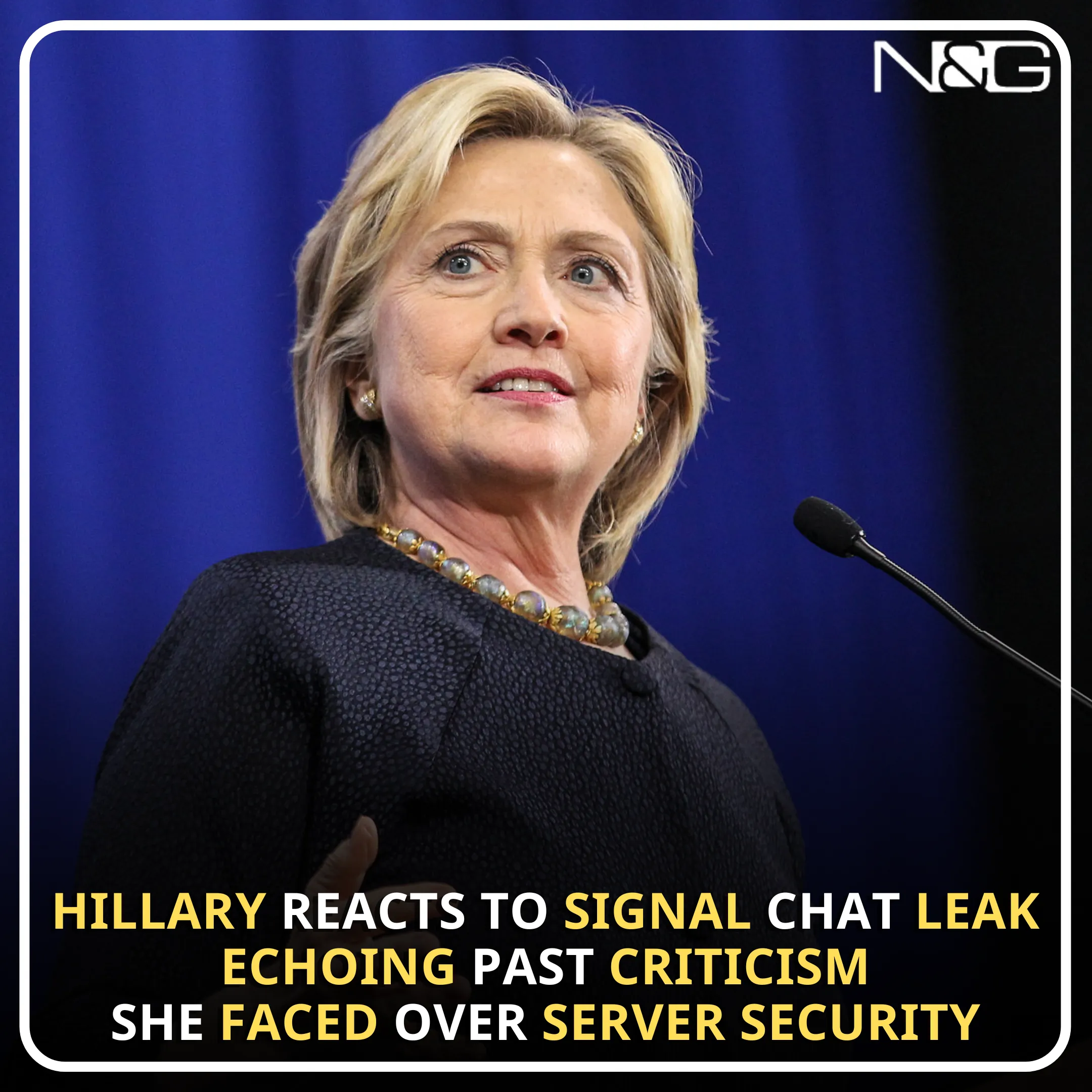
The so-called “Signalgate” scandal, which involves top Trump administration officials discussing sensitive military plans via the Signal messaging app, has sparked growing concern within the Republican Party, even as Trump’s inner circle continues to downplay the matter. Despite attempts to minimize the incident, the majority of Americans, including a significant portion of Republicans, view the breach as a serious issue that demands accountability.
The incident revolves around a discussion of military strike plans targeting Houthi rebels in Yemen, which were accidentally shared on Signal, a messaging app that promises end-to-end encryption. The breach became even more controversial when it was revealed that The Atlantic Editor-in-Chief Jeffrey Goldberg was inadvertently added to the group chat, despite being a journalist with no security clearance to access such sensitive information.
Recent polling data underscores the gravity of the situation. According to a survey conducted by YouGov, 60% of Republicans expressed concern over the incident, describing it as a serious problem. This figure, while slightly lower than the 72% of Independents and 89% of Democrats who share the same sentiment, still highlights significant unease within Trump’s base.
The fact that a majority of Republicans view the breach as problematic suggests that the issue is gaining traction even among those who have typically been more supportive of the president’s actions.
More broadly, the poll, which surveyed 5,976 U.S. adults, found that 74% of respondents believed the use of a messaging app to discuss military strike plans was either a very serious (53%) or somewhat serious (21%) issue. Only 13% of participants dismissed the situation as either “not very serious” or “not serious at all.”
Within the Republican Party, 28% of respondents considered it to be a “very serious” problem, reflecting a deeper concern than some of Trump’s defenders have acknowledged.
In response to the controversy, the White House has leaned heavily on a single word to discredit the reporting by The Atlantic—namely, the use of the term “attack” rather than “war.” White House Press Secretary Karoline Leavitt took to X (formerly Twitter) on Wednesday to push back against the article’s characterization of the conversation.
“The Atlantic has conceded: these were NOT ‘war plans,’” Leavitt wrote, insisting that the discussions were not about military operations that would typically fall under the category of “war.” She also dismissed the report as “another hoax written by a Trump-hater who is well-known for his sensationalist spin.”
However, despite the White House's repeated attempts to downplay the significance of the leak, the response has not been without controversy. Critics have pointed out that focusing on semantics—whether the plans were “war plans” or simply “attack plans”—distracts from the larger issue of security protocols and the mishandling of sensitive information by top officials.
Not all of Trump’s supporters are willing to overlook the incident. Prominent MAGA allies have begun to distance themselves from the White House’s rhetoric, calling for acknowledgment of the mistake and accountability for those involved.
Conservative commentator Tomi Lahren, a vocal Trump supporter, took to X to express her frustration with the response.
“It was bad. And I'm honestly getting sick of the whatabout-isms from my own side,” Lahren wrote. “What's good for the goose is good for the gander. Admit the F up and move on.” Lahren’s candid remarks reflect the growing discontent among some conservatives who feel that the scandal is being mishandled and not addressed with the seriousness it deserves.
Lahren’s call for honesty and transparency resonates with those who believe that acknowledging the error is a crucial step in moving forward. The incident has raised questions about the broader implications for U.S. national security, particularly in how sensitive information is handled and who has access to it.
Even some Republicans in Congress, who have typically been staunch defenders of Trump, have admitted that the Signal breach was a significant mistake. Senator Ted Cruz (R-TX) acknowledged that the inclusion of a journalist in the group chat discussing military strikes was “obviously a mess.”
Speaking to ABC News, Cruz remarked, “It was a serious mistake to add a reporter to this Signal chain. And I feel confident it's not something that will happen again.”
Despite his admission of the mistake, Cruz dismissed calls for an official inquiry into the incident, particularly the suggestion from Senate Minority Leader Chuck Schumer (D-NY) to launch a formal investigation. Cruz described Schumer’s request as a “political attack,” further underscoring the partisan divide over how to address the matter.
Cruz’s comments reflect the broader Republican hesitation to fully confront the issue, with many in the party preferring to downplay the severity of the situation for political reasons. This reluctance to fully engage with the scandal may end up being a point of contention in the coming months as the Republican Party prepares for the 2024 election cycle.
As the fallout from the Signal breach continues to unfold, pressure is mounting on National Security Adviser Mike Waltz, who was responsible for adding Goldberg to the group chat. Waltz’s role in the incident has sparked a backlash from both Republicans and Democrats who believe that the security breach must be addressed by removing him from his position.
NBC News reported on Thursday that an increasing number of Trump’s allies are calling for Waltz’s dismissal. The growing calls for Waltz’s removal reflect the seriousness with which some are taking the breach and the need for accountability within the administration.
Waltz, for his part, has attempted to downplay the situation. Speaking at the White House, Waltz claimed that he had no idea how Goldberg ended up in the chat, expressing surprise at the inclusion of the journalist.
“We are looking into and reviewing how the heck he got into this room,” Waltz said during a meeting with Trump and U.S. ambassadors. However, his comments only added to the confusion, as many are questioning why such a significant breach of protocol was allowed to happen in the first place.
In response to questions about Waltz’s role in the leak, President Trump has remained largely nonchalant. When asked if Waltz should apologize for the mistake, Trump dismissed the idea, saying, “No, I don’t think he should apologize. I think he’s doing his best. It’s equipment and technology that’s not perfect, and probably he won’t be using it again, at least not in the very near future.”
Trump’s lack of concern over the breach has raised eyebrows, particularly among those who believe that the situation calls for a stronger response. The president’s downplaying of the incident stands in stark contrast to the growing calls for accountability from both within his own party and from the opposition.
The Signalgate scandal has significant implications not only for the Trump administration but also for the broader issue of national security and the handling of classified information. The fact that senior U.S. officials were discussing sensitive military operations on a commercial app with no clear safeguards in place raises serious questions about the security protocols within the government.
For the Biden administration, the scandal provides an opportunity to highlight the differences in how each administration handles national security. The Biden White House has made a concerted effort to restore trust in the handling of sensitive information, emphasizing the importance of secure communications and the need for stronger oversight.

The ongoing controversy surrounding the breach serves as a reminder of the critical importance of protecting classified material and ensuring that those with access to such information follow the proper procedures. As the 2024 election cycle approaches, the fallout from Signalgate could play a significant role in shaping the political discourse, with voters increasingly concerned about the competence and accountability of their leaders.






